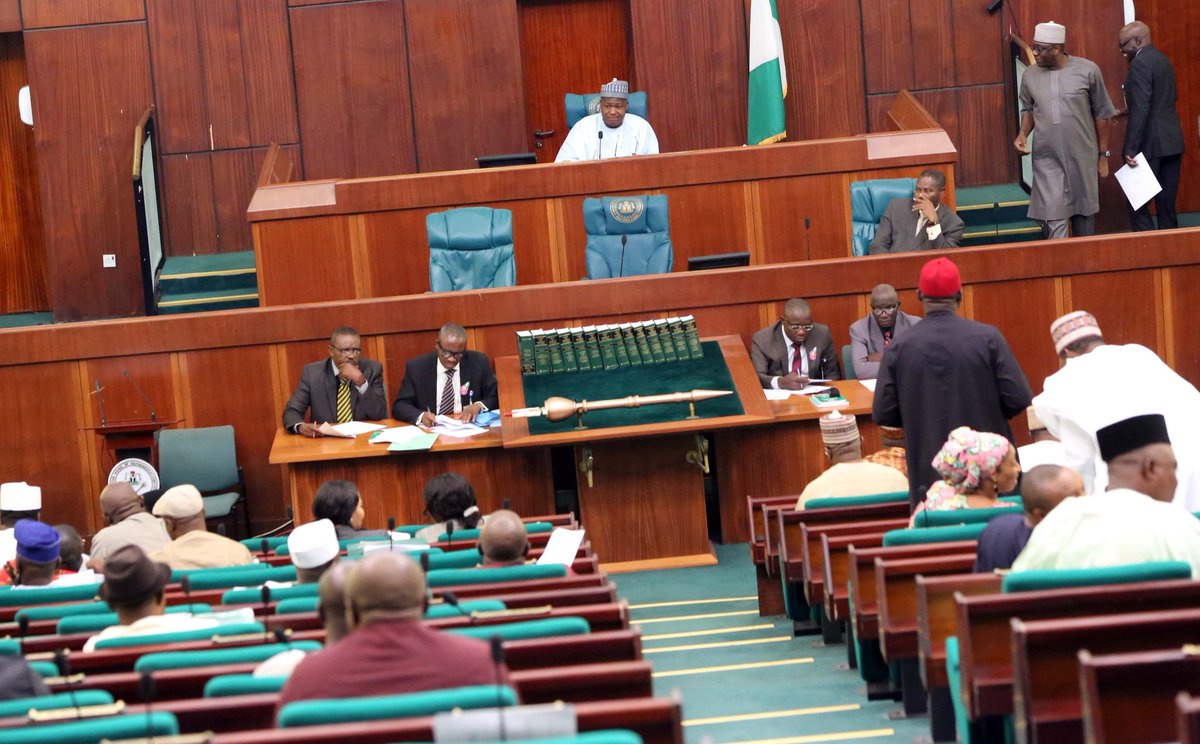- March 30 no Longer Feasible for Budget Passage — Reps
About 86 out of the 96 standing committees of the House of Representatives have failed to produce any report on the 2017 budget.
The development is an indication of more delays for the N7.29tn budget.
The Committee on Appropriations wrote the House for the second time on Thursday to complain that “over 80 per cent” of the committees had not reported on the budget.
This implies that just about 10 out of the 96 committees had produced their reports after over three weeks of consistently failing to meet the deadline for the submission of the reports.
The committee’s complaint, which was read to members on the floor of the House by the Speaker, Mr. Yakubu Dogara, noted that the House might be forced to pass all executive proposals in the budget in the absence of the committees’ reports.
“Three weeks after the deadline, over 80 per cent of standing committees have yet to submit their reports,” Dogara read from a document submitted to the House by the Chairman, Committee on Appropriations, Mr. Mustapha Dawaki.
Most of the committees had unresolved issues with ministries, departments and agencies of the Federal Government regarding the details of their budget proposals.
As of Friday, investigations showed that the committees were still struggling to reconcile figures after receiving budget details from “a number of MDAs.”
Our findings also indicated that without the reports, the budget would not be passed by the legislature.
Similarly, a source in the Committee on Appropriations said there were unanswered questions that were supposed to guide the committee taking decisions.
The source said, “For instance, will the budget size increase or reduce? Are we retaining $42.5 as the benchmark? Are we retaining the proposed N305/dollar exchange rate or it will change?”
Speaking on the issue, the Chairman, House Committee on Media and Public Affairs, Mr. Abdulrazak Namdas, confirmed that the March 30 date scheduled for the passage of the budget by the National Assembly was no longer feasible.
Namdas explained that apart from the committee reports not being ready, the Federal Executive Council was approving additional projects to be included in the 2017 budget.
“There are a number of issues and we can’t promise that March 30 is sacrosanct. There is a new budget software different from the one in use before, and besides, the FEC is daily approving new projects to be included in the budget. However, we will try our best to ensure that all the committees submit their reports,” he said.
On its part, the Senate has extended the period for which its committees are to submit their reports on the 2017 Appropriation Bill to the Committee on Appropriations for harmonisation, it was learnt on Friday.
The committee is expected to present a unified report to the Senate for passage.
The upper chamber of the National Assembly said the delay was caused by other legislative work, including the confirmation hearing held for the acting Chairman, Economic and Financial Crimes Commission, Mr. Ibrahim Magu, and the summon and appearance of the Comptroller-General, Nigeria Customs Service, Col. Hameed Ali (retd.).
The lawmakers had planned to pass the budget on March 8, 2017.
The Chairman, Senate Committee on Media and Public Affairs, Senator Sabi Abdullahi, who is also a member of the Committee on Appropriations, told one of our correspondents that the submission of reports was expected to be concluded this week.
He said, “I don’t know anything about deadlines; we have a time line. But if you look at the way we have been working, other things have interrupted the process and the period of work. We are making efforts to see that by next week, we are able to conclude the receipt of reports.”


 Naira4 weeks ago
Naira4 weeks ago
 Naira4 weeks ago
Naira4 weeks ago


 Naira4 weeks ago
Naira4 weeks ago




 Naira3 weeks ago
Naira3 weeks ago
 Commodities4 weeks ago
Commodities4 weeks ago


 News4 weeks ago
News4 weeks ago


 Banking Sector4 weeks ago
Banking Sector4 weeks ago
 Travel4 weeks ago
Travel4 weeks ago























